Japan Facts: 50+ Fun Facts about Japan
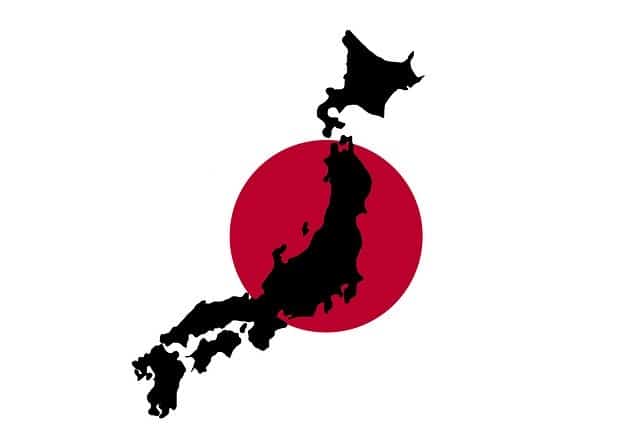
50+ Interesting and Fun Facts about Japan
50+ Japan Fun Facts
Here are 50+ Fun Facts about Japan – from someone who used to live there. These facts on Japan are fascinating as Japan is an interesting and complex country!
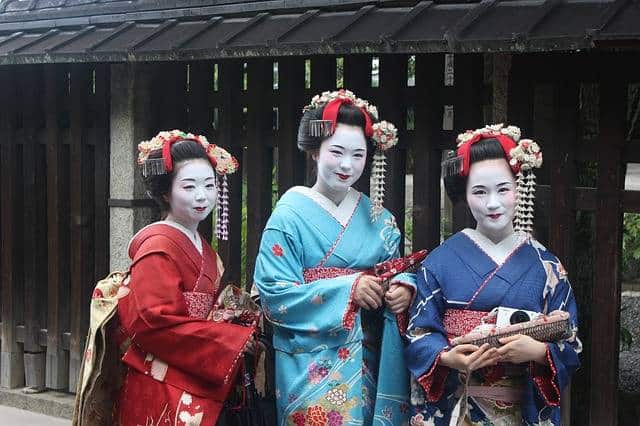
If you are looking for good facts about Japan or interesting facts about Japan you are in the right place. Most people are going to tell you about the population or that the currency is the Yen but this list of Japan Facts is so much more. There are some random Japan facts, odd facts about Japan, fun Japanese facts, and interesting things about Japan.
There are even some weird facts about japan on the list. To me, these facts about Japanese culture are what make it really cool stuff about Japan and many are the best things about Japan. This list is all about Japan.
Japan Facts: 50+ Fun Facts about Japan
Japanese Flag
The Japanese name for Japan is “Nippon” which means “sun origin”. You can see this in the flag of Japan.
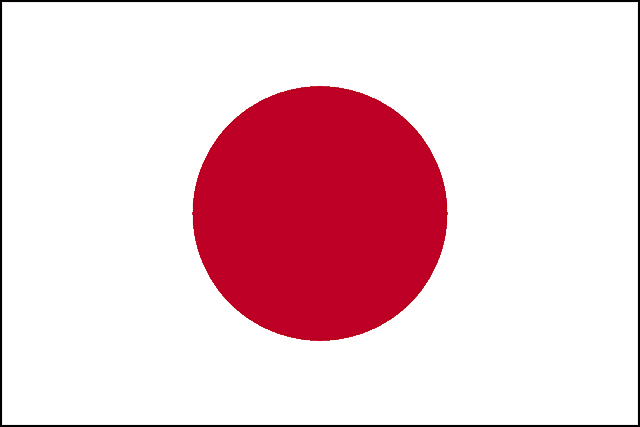
Japanese Islands
Japan is made up of 6, 852 islands. The four main islands are: Hokkaido, Honshu, Shikoku, and Kyushu.
Japanese currency
The Japanese currency is the Yen.
Population of Japan
The population of Japan is 126.8 million.
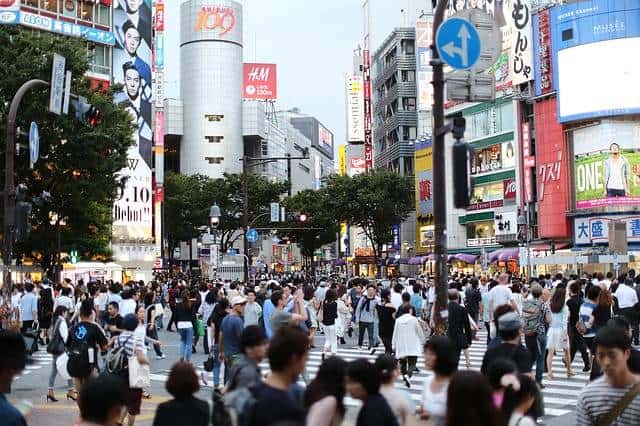

Subscribe to Travelgal Nicole!
Get updates on the latest posts and more from Travelgal Nicole straight to your inbox.
Major Cities in Japan
The major cities in Japan are Tokyo, Osaka, Kyoto. I have articles on a one week Japan itinerary, 10 day Japan itinerary and two week Japan itinerary.
Vending machines
Japan is home to around 5.6 million vending machines. That means there is roughly one machine per 23 residents.
Temples, Temples, Temples
There are over 1600 Temples in the city of Kyoto. You can read my articles on the Temples in Kyoto for more information.
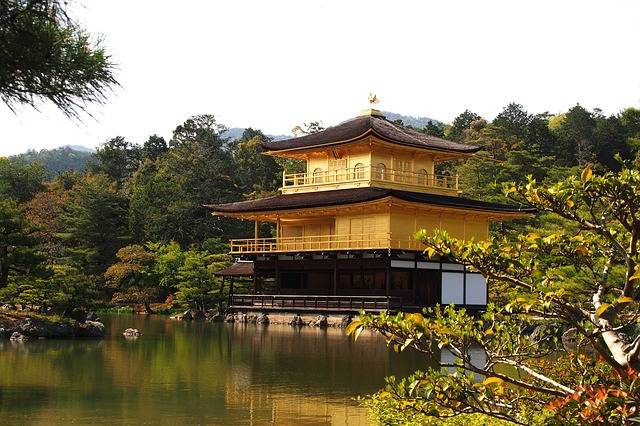
Sorting garbage
Simply throwing garbage away in Japan can be quite a complex ordeal for visitors. Multiple bins are set up in front of public spaces, such as convenience stores and train stations, to separate combustible, incombustible, oversized garbage, and bottles and cans.
Lack of garbage bins
While sorting garbage can seem like a daunting task at first, it is interesting to note that garbage bins, themselves, are not often found on the street. Most bins are centrally located in front of convenience stores and at train stations. The Japanese are extremely mindful of their surroundings and take garbage with them until they can dispose of it properly.
There is no tipping in Japan
Tipping is not necessary in Japan. This includes: restaurants, hotels, and taxis. If you try to tip, you will more than likely have someone run after you to give you your change!
Taxi doors
Taxi doors in Japan are automatic so there is no need to open, or close, them by yourself. In fact, it is preferred that you do not touch the door as the taxi driver operates it from the front seat.
Safety in Japan
Japan is one of the safest countries in the world. It is not uncommon to drop or lose something and have it returned by a stranger.
Japan Rail Pass
Previously, the only way to buy the rail pass was outside of Japan and called an ‘exchange order’. Now, the rail pass can be purchased at both Narita and Haneda airports, as well as major JR train stations.
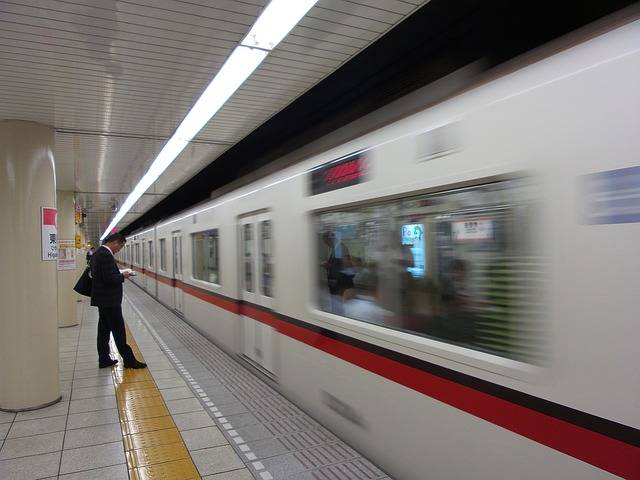
Ryokans
Ryokans are a traditional style inn where visitors have rooms with tatami mats, sleep on futons, can wear yukatas to bed, and bathe in Japanese style baths known as onsens. Check out my article on Kyoto Ryokans to find out more.
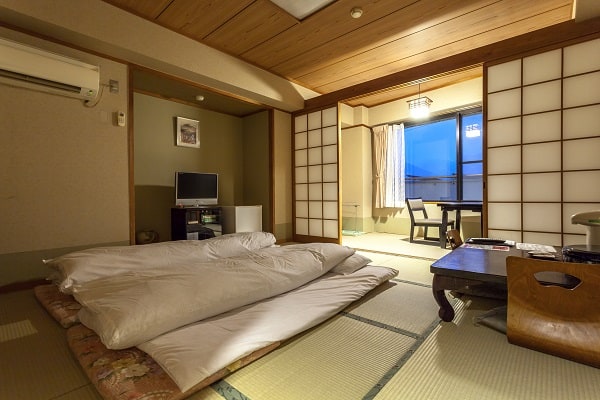
Capsule hotels
Visitors usually pay 3,000 – 4,000 yen per night for a capsule hotel. This includes a private enclosed bed with basic amenities. It is a fun experience and I highly recommend trying one!
Seasons in Japan
Japan has four distinct seasons. Americans visiting Japan will find these seasons similar to their own. The seasons are generally mild, but summer can be quite hot for some, with temperatures in the high 80s – low 90s daily.
Onsens
Onsens are natural hot spring baths with geothermally heated water. Japanese love to visit them throughout the year, but are particularly nice in the winter. They are usually separated by male and female, and bathing suits are not commonly worn.
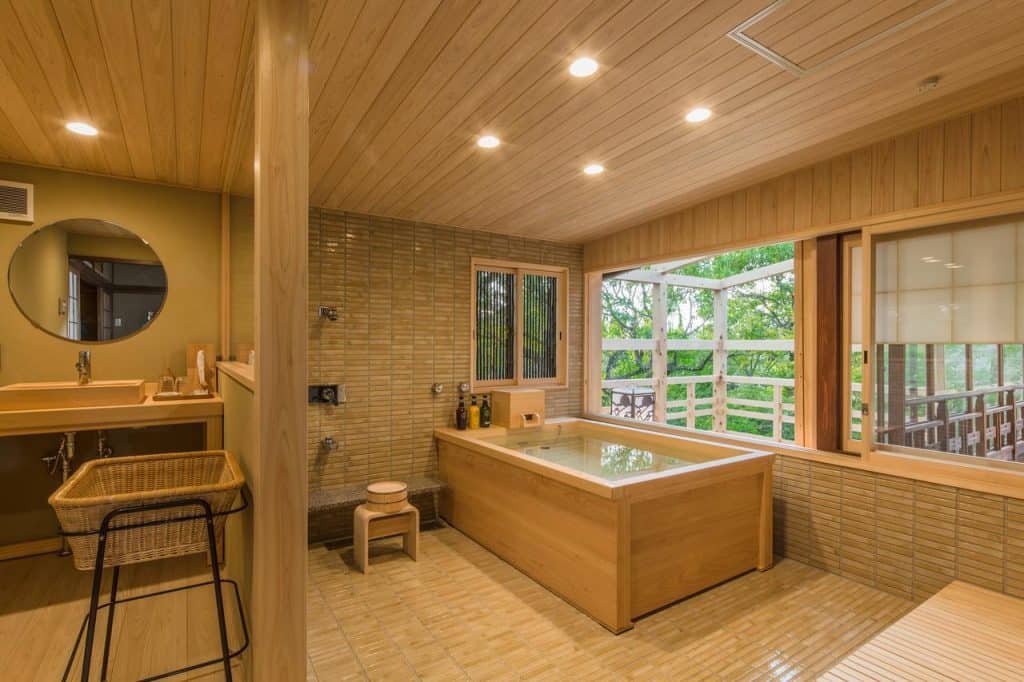
Japanese toilets
Japan has the best toilets, by far. Some of the features include a bidet, spray, sounds to play while using the bathroom, and a heated toilet seat. Many bus stations have adopted a bathroom system where screens show available toilets stalls in green, while occupied toilets are red. Don’t worry, they still have toilet paper.
Japan is on time
The entire country runs on time. It is very rare for a train, bus, or individual to be late.
Wifi
While WIFI is not as widely accessible as other countries, most ryokans and hotels have free WIFI. In addition, pocket WIFI from companies such as Global Advanced Communications, eConnect Japan, Japan Wireless, NINJA Wifi, and PUPURU Wifi can be picked up at major airports and some hotels.
Convenience stores
Convenience stores offer a wide range of products. Items such as laundry detergent, t-shirts, stationery and a variety of food and drinks can be found. Food, such as soups, lunchbox meals, and rice bowls can be warmed up by staff.
You take off your shoes before entering a house – ALWAYS!
It is customary in Japan to remove your shoes upon entering a house. Japanese often remove their outside shoes and wear slippers inside of their houses.
Fruit is expensive
Fruit is not the cheapest item to buy in Japan. While apples and bananas are on the cheaper end, cantaloupe and watermelon can get quite pricey. Yubari King cantaloupe could be considered the world’s most expensive fruit.
Two cantaloupes were auctioned off in Sapporo in 2018 for a whopping $29,000!
There are many Themed Cafes
Japan is crawling with different cafes where you can do more than have a refreshing drink. Vampire, ninja, cat, owl, hedgehog, snake, penguin, maid, monster and robot cafes are just a few.
Train cards
Train cards are an easier and faster way to get through a station. They can be purchased at a machine in the station and can be topped up, eliminating single use tickets. IC cards by region (rail and subway) include: Kitaca (Sapporo), Suica/Pasmo (Tokyo), Manaca/Toica (Nagoya), Icoca/Pitapa (Osaka), and Nimoca/Sugoca/Hayakaken (Kyushu).
Izakaya culture
Izakaya restaurants are a type of informal bar where drinks and small plate meals are shared. Coworkers often frequent these bars after work. Although tipping is not expected, izakayas often add a seating charge to the bill.
Smoking in Japan
Many people smoke in Japan. It is not uncommon to walk into a restaurant and still be asked whether a smoking or non-smoking section is preferred. A new law will be carried outs in April 2020 to ban smoking at all schools, government offices, and hospitals. Further restriction on restaurants and bars may be enforced in the coming year.
Traditional clothing
Japanese men and women both wear traditional clothing in Japan. Women wear kimonos and yukatas (summertime) and men wear yukatas and jinbei (summertime).
Futons vs beds
When visiting Japan, one will likely encounter a bed in a hotel room and futons in the older style inns called ryokans. Futons (shikibuton) are thick mattresses laid on the floor (tatami mat) covered by a sheet and a quilt blanket (kakebuton).
They are accompanied by a small pillow filled with beans (makura). It may take a night or two to get used to sleeping on this pillow!
Sumo wrestling
Sumo originated in Japan and is considered a modern martial art (gendai budo). Wrestlers continue to practice elements of the Shinto religion such as salt purification before the match begins. Sumo training stables (heya) provide a communal space where wrestlers dedicate every waking minute to the sport, outlined by strict traditions.
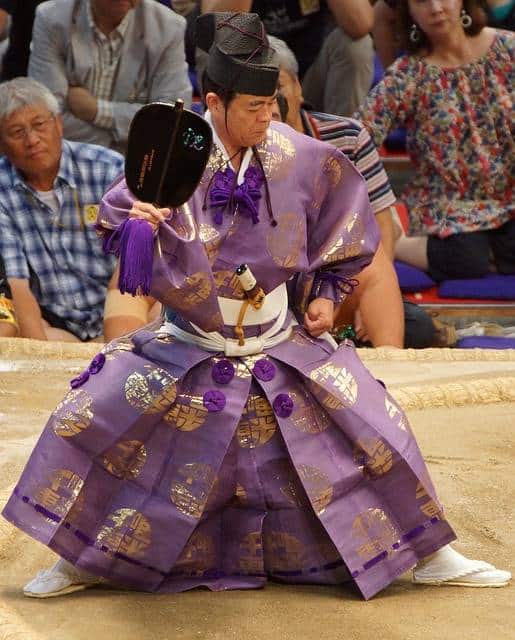
Salary men
It is easy to identify a Japanese salary man based on his outfit. Many salarymen wear white shirts and black business suits. They often work long hours, sometimes 70-80 hours a week. It is not uncommon for these employees to work themselves to death, given the amount of time spent at work.
Japanese culture facts and religion
Buddhism and Shintoism are the two largest religions in Japan. Buddhism was imported in the 6th century, while Shinto has been around as long as Japan has been.
Mount Fuji
Mount Fuji, with a height of 3,776.24 m, is the tallest volcano in Japan. It is located on the Island of Honshu and is a UNESCO World Heritage Site. Peak climbing times are from July 20th to the end of August. Mount Fuji is an iconic Japanese Landmark. Check out my article to find out more on the famous Hakone Region.
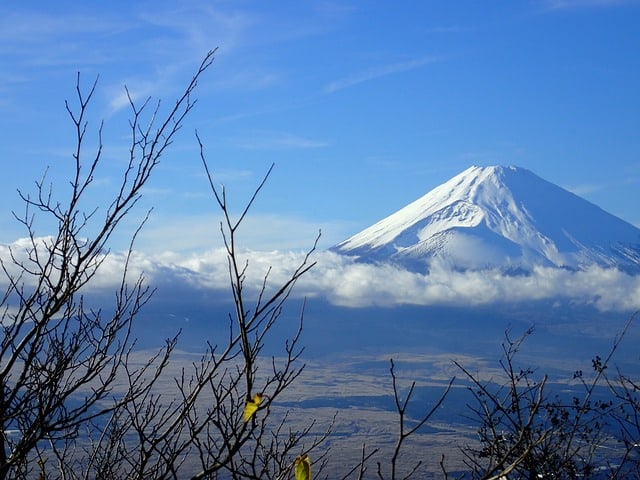
Bullet trains in Japan
Bullet trains are the fastest and most convenient ways to travel around the country. There are three types of bullet trains that go at different speeds. The fastest is the Nozomi, followed by the Hikari, and last the Kodama. On average, a bullet train travels 2,500 feet per second.
Job hunting in Japan
Job hunting (shūshoku katsudō) is completed by third year college students in their quest to secure employment after graduation. Students may attend fewer classes to attend company seminars. Many girls dye their hair black, if a lighter color, and all students wear black suits and white shirts.
Japanese life expectancy
Japan has a very high life expectancy. The average age is 84.55 as of 2019. Japanese can attribute their health to a balanced diet low in saturated fat and calories, yet high in nutrients.
The Japanese writing system
There are three main writing systems in Japan. Hiragana, used for native Japanese words, Katakana, used for foreign names and words, and kanji, Chinese characters.
National exercise: Rajio Taiso
Introduced in 1928, Rajio Taiso was an idea brought back to Japan from the United States. It was used to keep Japanese soldiers healthy during the 1930-40’s, but was modified and adopted by the Education Ministry, Health Ministry, the Japan Gymnastic Association and Japan Recreation Association in 1951.
Getting a Japanese Visa
Japan typically issues single entry visas for 90 days. Multiple entry visas can be obtained for visitors with business purposes, or with countries Japan has bilateral agreements with. Multiple entry visas range from 1-5 years.
Buying souvenirs for Japanese coworkers/friends
A popular tradition in Japan is to buy souvenirs (omiyage) for friends or coworkers when traveling both in the country, or abroad. Many Japanese find individually packaged sweets a good option as they can share them with coworkers as a way to thank them for their time off.
Check out my post on Japanese Souvenirs
Aquarium in Okinawa
The Okinawa Churaumi Aquarium was the largest aquarium when built in 1976. It was rebuilt in 2002 and its size was surpassed by the Georgia Aquarium in 2005. It is home to 740 different species and 26,000 living creatures. The main tank, Kuroshi Sea, is large enough to house a shark whale (12m long).
Hokkaido Winter Festival
One of the best winter festivals (yuki matsuri) can be found in Hokkaido in February. It is held in Odori Park and displays enormous snow and ice sculptures. Other activities include ice skating and snow slides/rafts.
Beauty Face masks in Japan
Face masks are a popular skin treatment in Japan. They are relatively cheap, ranging from $5.00 – $10.00 for a pack of 7 – 10 masks. Five popular brands are: Pure Smile, Lululun Precious, Keana Nadeshiko Rice Mask, Quality 1st All in One Sheet Mask, and Clear Turn Babyish.
Japanese street/festival food
Summertime is a great time to visit Japan with a variety of festivals, and food! Some of the top festival food consists of karaage (fried chicken), ikayaki (fried squid), Takoyaki (breaded octopus), okonomiyaki (Japanese pancake) and more!
Comic book cafes in Japan
Mangakissa (kissaten) are cafes where people can go to read comic books and relax. They can choose from hundreds of books to read, and often double as internet cafes. It costs roughly $9/hour and are open 24 hours a day 365 days a year.
Utensils in Japan
The main utensils used in Japan are chopsticks. Many restaurants do not provide forks, spoons, and knives, unless the meal calls for it. They can usually be brought to the table upon request if not already there.
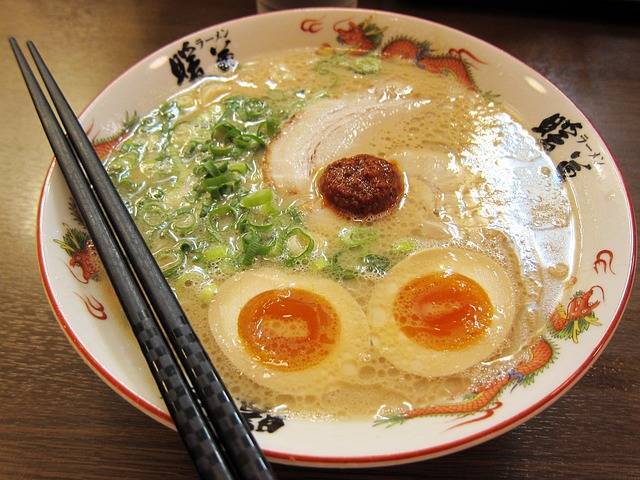
Japanese Kobe beef
Cattle raised in Hyogo Prefecture are thought to be one of the most delicious cuts of meat, Kobe beef (Wagyu beef). It can be prepared in many different styles including: sukiyaki, sashimi, steak, shabu-shabu, and teppanyaki.
Japanese skin tone preference – Japan culture facts
The majority of Japanese women prefer to have a lighter skin tone color. In order to achieve this, they wear big hats, arm sleeves, and umbrellas to protect from the sun and a darker complexion.
However, there is a group that actually prefers dark tan skin and vibrant makeup called ‘ganguro’.
Japanese dental work – facts about Japanese culture
It is not uncommon for Japanese men and women to have crooked teeth. Some women will go as far as asking dentists to un-straighten their teeth because it is seen as a “cute” attribute.
Japan has the busiest train station in the world
Shinjuku station is the largest station in the world, measured by passenger use. It sees an average 3.6 million people passing through per day.
Kit Kats in Japan
Kit kat flavors are anything but ordinary in Japan. Some of the adventurous flavors include: apple, baked custard, banana, baked potato, blueberry cheesecake, brown maple syrup, and wasabi. They can be purchased in individual flavors, or multi-flavor packs. This is one of the cool things in Japan.
Japanese Christmas traditions and Japanese culture facts
Christmas in Japan can be summed up in three letters KFC (Kentucky Fried Chicken). While Americans spend time with family and make big meals, Japanese prefer to eat fried chicken and save big family traditions for New Years.
Hello Kitty
Hello Kitty is one of the most iconic symbols of Japan. From plush toys, to towels, clothing, to stationary, it can be seen across the country.
Fish in Japan
Japanese eat a large amount of fish every year. An average person consumes roughly 154 pounds a year, about 6-10% eaten in the country annually.
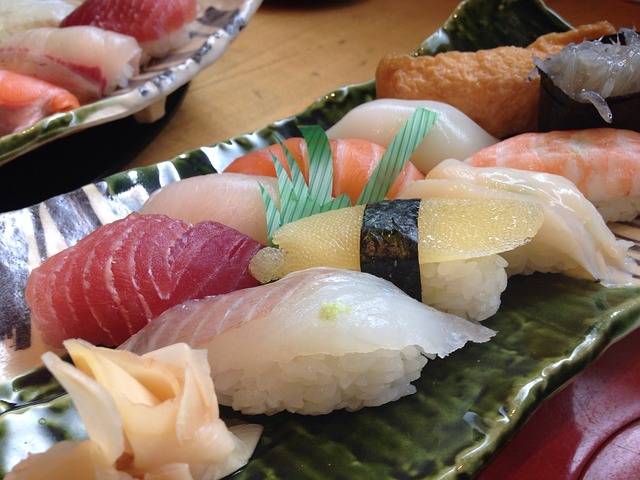
Most popular sport
The most popular sport in Japan is baseball.
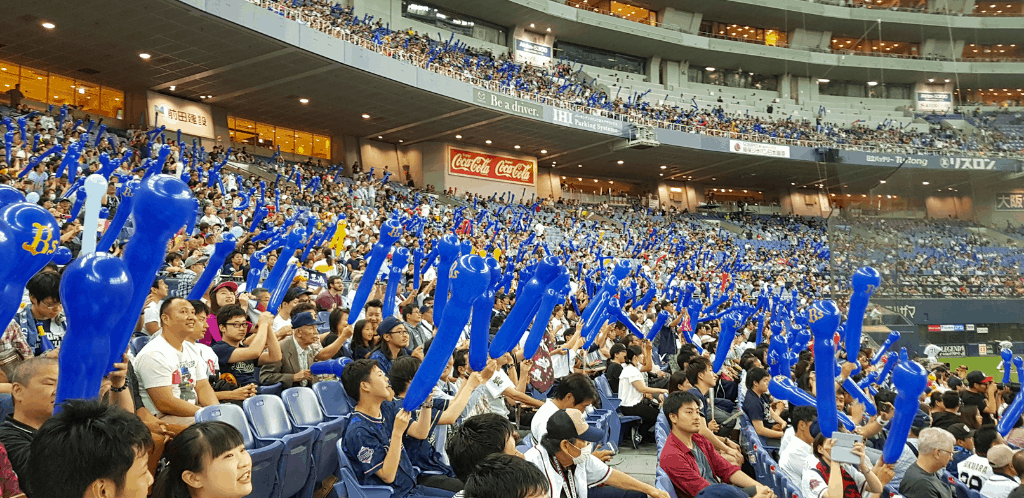
Children learn to clean in school
Children learn respect and responsibility in school. Together they work as a team to clean their classrooms and common areas.
Greetings
The common greeting between Japanese when meeting and departing is a bow.
Bathroom etiquette
Upon entering a bathroom in someone’s home or sometimes a restaurant, it is proper etiquette to wear separate bathroom slippers. Upon leaving one should line the slippers up neatly next to the other pairs ready for the next person.
Tokyo is hosting the Olympics
Tokyo is the only city in Asia to host the Olympics twice. They first hosted the 1964 Olympics and will host the 2020 Olympics – now happening in 2021.
Conclusion: Japan fun facts
I hope you have enjoyed this list of interesting Japan facts and it is a bit different than other lists of Japanese facts. I consider myself an expert on all things Japan and facts about Japan. You can check out my 30+ articles on Japan to learn more about this intriguing country.
Recent Posts
Sea Quotes: Are you looking for the best quotes about the ocean? My love of the sea has led me to collect many sea quotes for Instagram. These are the best ocean quotes for Instagram, captions for...
200+ Best Waterfall Quotes and Waterfall Captions for Instagram
200+ Waterfall Quotes and Waterfall Captions for Instagram Waterfall Quote: Are you looking for the perfect quotes about waterfalls to caption your Instagram? This list of waterfall quotes has...

No comments:
Post a Comment